Sneak peek: Ideas for emotional development toys that kids will find entertaining and engaging.
Have you ever had a sinking feeling after purchasing a toy for your kids? You know the one I mean…the feeling that rises when you realize that the toy you just bought is useless. We’ve all been there. Maybe it was the fad “must-have” toy your child begged to have for months. Or maybe it was that last-minute desperation purchase the night before a big gift-giving occasion. Whatever the situation, we’ve all had it happen.
It doesn’t make us bad parents.
Although it gets lost in all the commercialism of our society, toys are not meant to be useless. They are meant to have a purpose. Toys and the play they promote are meant to help kids learn. By learn, however, I don’t mean the flashcard, rote-type of learning that has become so popular in recent years. I mean real learning.
Learning that involves creativity, imagination, social play, stories, fine motor skills, and conversation. This is the real play that builds brains and develops skills. When we think about play in this way, we see that toys matter. The process and thought that goes into choosing toys matters too.
That’s why it’s important to consider what skills the toys we choose might help our kids develop. Now, I’m not some toy-choosing police who thinks all toys have to be super educational (aka boring) but I do think it’s helpful to be mindful about the toys we choose. This collection of social-emotional learning toys is meant to be a guide to help you consider some toys in a new light. Many of these toys are classic standbys that we probably had as children ourselves. Seen in the light of social emotional development, however, the purpose of these toys takes on a new meaning.

Social-Emotional Development Toys for Infants
Dolls are, of course, a classic toy of almost every childhood. While any doll can promote emotional skills as a child cares for their imaginary baby, this one is unique because it includes emotional faces. Helping young children learn to read emotions early in life can help in social-emotional development.
These soft crinkle books have become popular with parents in the last few years for good reason—they help babies learn about texture and colors. This one in particular is great since it has high-contrast images. The feature that helps make it a good toy for developing social skills is that it also includes a mirror for babies to see themselves. While we know that babies do not know that the baby in the mirror is them until later, it is fun for them to explore faces. Babies don’t recognize that it is themselves in the mirror until around 18 months of age (a sign of self-awareness).
I really love this idea. I made one of these for my son when he was about 9 months old and he used it for years. Even as a toddler, he loved looking at the pictures. Looking at pictures of relatives helps babies keep them in their memory and builds a better emotional connection with them. One of the best emotional toys (it’s not exactly a toy but you know what I mean) for our youngest ones.
Related reading: Classic Baby Books that Boost Brain Development
Toddler Toys for Emotional Development
The toddler phase of development is packed full of developmental milestones but also a few challenges. Toddlers don’t have a lot of emotional maturity and their big emotions often get the best of them. Toddler toys for emotional development can help foster these skills so the emotional outbursts and tantrums eventually start to fade.
This emotion toy for toddlers is a clever way to foster learning about emotions. While emotions seem obvious to us, they are not so obvious for toddlers. They need support to understand the expression of different emotions and what they mean.
Although doctor kits have been around for decades as a child’s toy, they are still loved by kids. Why? Every kid loves to pretend play. What research tells us is that kids need pretend play. Through pretend play, kids learn about empathy, self-control, and emotions. By staying “in character” as a doctor (or another character) they learn how another person might be feeling and how to keep their emotions in check as they take on their “role” as a doctor. A wonderful classic toy that promotes social and emotional development.
Puppets are also traditional toys that are often overlooked in today’s modern world. Puppets, however, are a wonderful emotional support toy for toddlers. Just as with pretend play, when playing a puppet character kids have to take on the feelings and actions of another person (or character). This type of play build emotional intelligence by helping kids see the world through another person’s eyes.
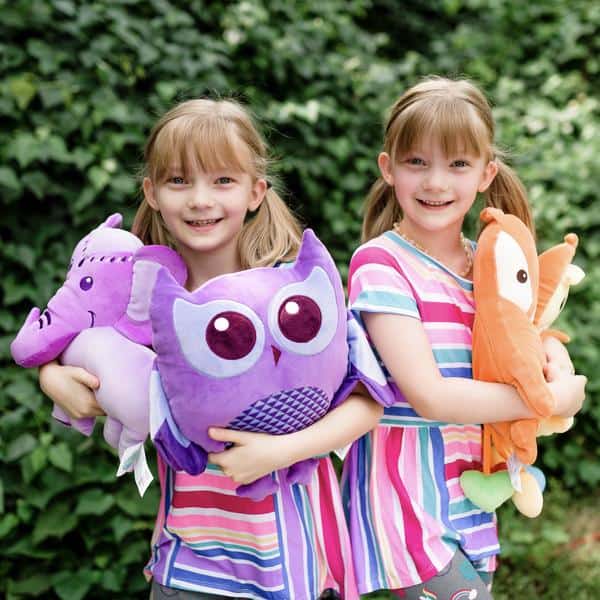

I discovered this cute toy a few years ago and became a big fan (we have the fox at our house!). Kids loved stuffed animals but I always thought they were kind of useless until I saw this one. Each colored shape represents a category of emotions. When kids get upset or sad, they can refer to these visual reminders to talk through their emotions. Research shows us that visual reminders of intangible things (like emotions) can help kids (and adults) process feelings better.
Related reading: Toddler Development: A Research-Based Guide for Parents
Gifts and Toys that Promote Social-Emotional Development for Elementary Age (and up)
By the time children reach the elementary years, they have somewhat better control of their emotions. However, this doesn’t mean that their emotional development is done. Kids at this age often still need support in focusing on empathy, taking turns, caring for others and not going down the path of bullying or teasing others.
Kids often learn best through play. Through playing this game, kids have the opportunity to role-play different scenarios that might evoke big emotions. Then it offers them strategies for handling these big emotions. Role-playing different emotional coping strategies while calm (that’s key!) can be helpful in knowing how to use them skills when you’re not so calm.
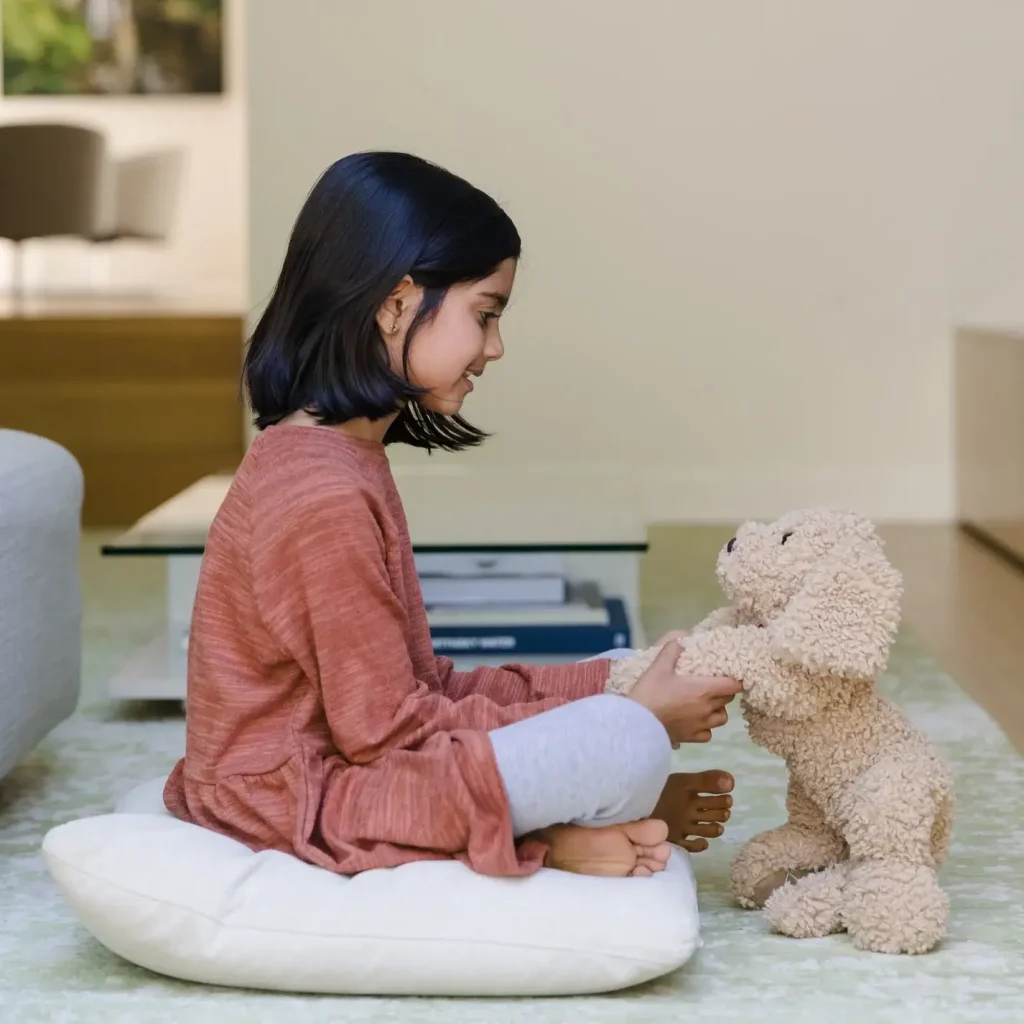
mediTate (by mindfully)
This little pup is not just another stuffed animal. TATE is a meditation pal. They come loaded with calming meditations you access through the adult app. TATE is soft and comforting so your child is motivated to cuddle up and listen, all the while learning how to calm their minds and bodies. A great learning tool.
This clever cooperative game motivates kids to use kindness and empathy to help get the cats out of tricky situations. Each cat has different attributes like kind words, helpfulness and sharing that can be used to move them down the path. A really fun social emotional learning game.
The name of this cute toy comes from the word “feelings” in Japanese. These little creatures draw you in with their expressive faces. Each critter comes with smaller Kimochis inside their pouch that represent different feelings. These give kids a way to express and put a visual representation of their emotions. You can also get a video to go along with these little guys that explains more about their use for emotional development.
Table Topics (teen edition)
The stereotype of teens is that they are quiet and sullen. I don’t think the teenage years have to be characterized by silence. These cards can help prompt real discussions with teens. The more talking we can do with our kids, the more their emotional skills will grow.
Another fun cooperative game in which kids have to work together and use their memory to find the ingredients for their soup. It builds teamwork and cooperation. This game continues to get good reviews for being one of the best toys that promote social development.
Related reading: Super Simple, Research-Backed Ways to Raise a Thankful Kid
When I first looked at this item, I never would have thought of its potential as a cooperation-building toy but it really is. Kids have to work together and coordinate their movements to meet their goal. This one is wonderful because it is both an active game and boosts social skills.
Some cooperative board games seem boring and uninteresting but not this one. Players have to work together to collect keys before the ogre does so you can win the treasure.
Did you have a set of word magnets on your fridge as a child? Or maybe those poetry magnets. Who knew those actually boosted learning so much? These magnets are special because they focus on positive affirmations and helping kids see their talents and uniqueness. What a great tool for older kids to build emotional intelligence.

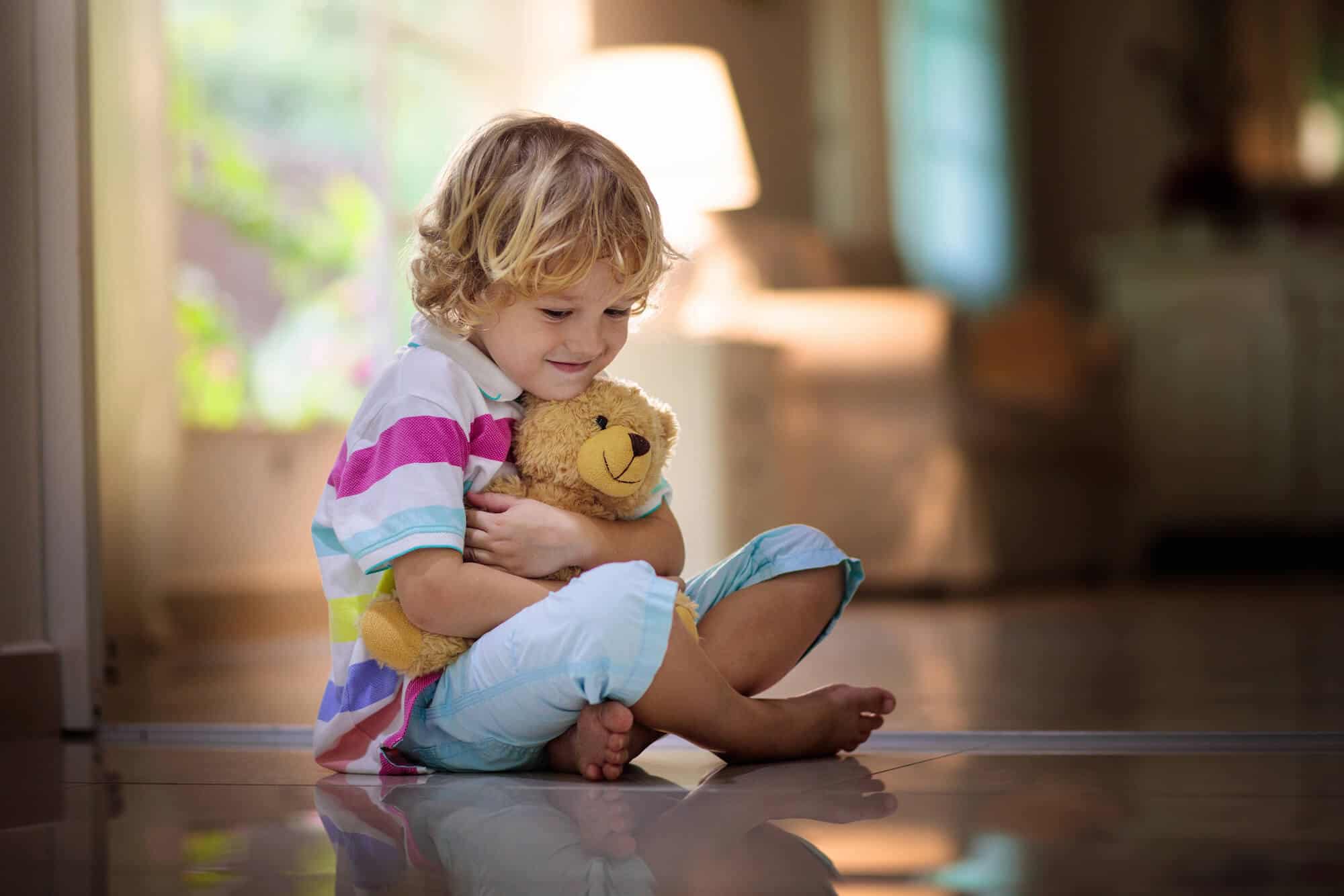







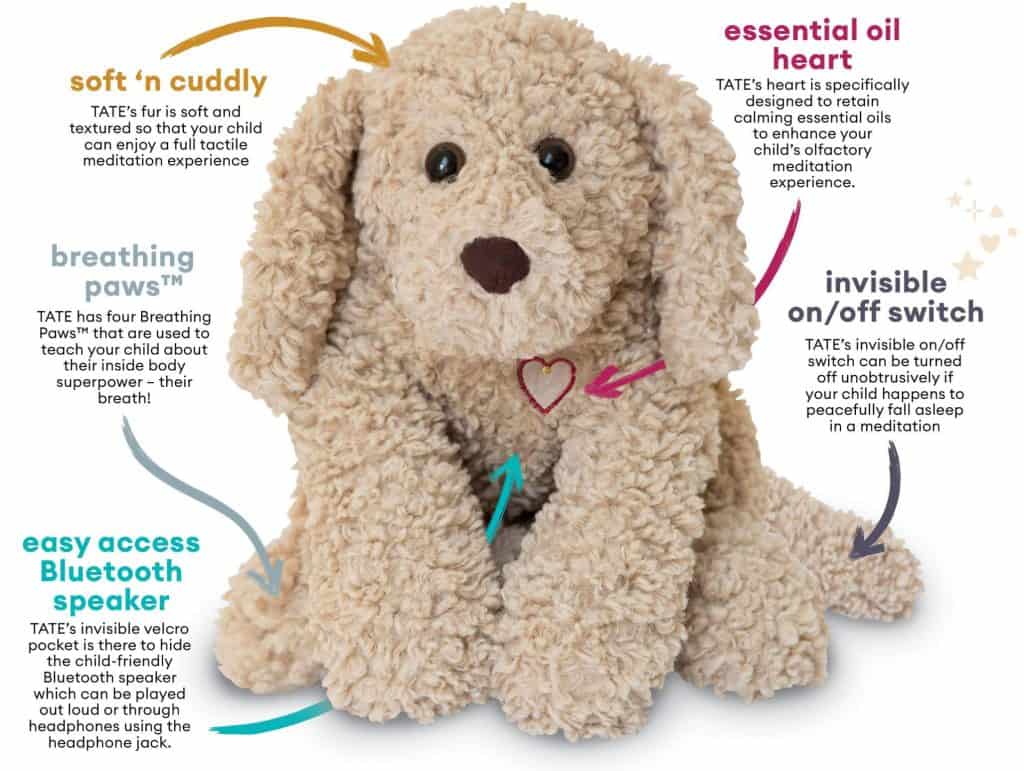


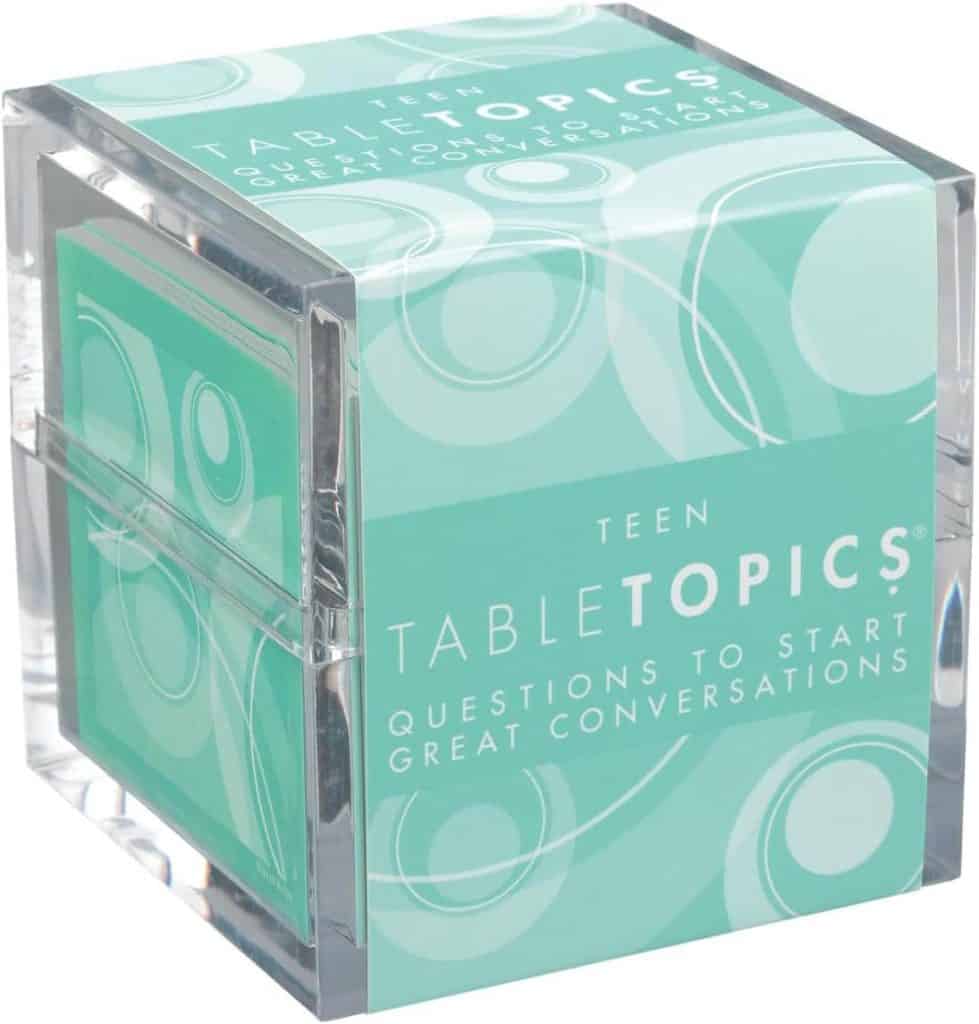



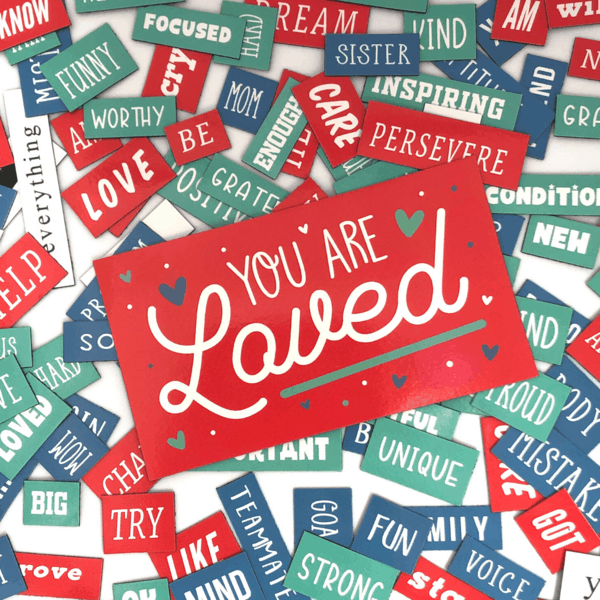

Laurie Baker
I’m picking out a meaningful toy for my kid